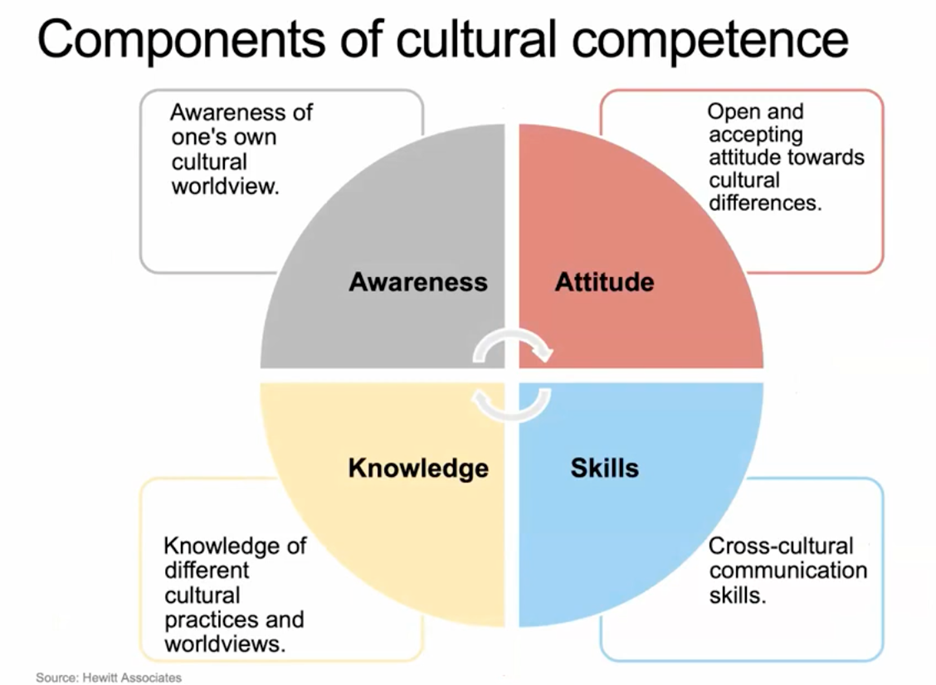Because of the ever-changing social work landscape, the ability to effectively engage with diverse populations is not just an asset; it’s a necessity. Social workers should provide support and resources to individuals from a wide range of cultural backgrounds. As a result of increasing diversity in communities, mastering cultural competence has become more critical than ever.
This is where specialized Continuing Education Units (CEUs) come into play. These educational opportunities empower social workers to enhance their cultural competence, resulting in improved client care.
Understanding Cultural Competence in Social Work

Cultural competence refers to the ability of social workers to understand, appreciate, and interact with individuals from cultures different from their own.
The National Association of Social Workers (NASW) defines social competence as “the process by which individuals and systems respond respectfully and effectively to people of all cultures, languages, classes, races, ethnic backgrounds, religions, spiritual traditions, immigration status, and other diversity factors in a manner that recognizes, affirms, and values the worth of individuals, families, and communities and protects and preserves the dignity of each.”
As a result, you must integrate cultural awareness into your practice. Cultural competence involves a deep understanding of one’s own cultural identity, an appreciation for the cultural backgrounds of others, and the skills to adapt interventions and communication styles accordingly.
Why Cultural Competence Is Crucial?
In social work, cultural competence is vital for several reasons:
Improved Client Outcomes:
When social workers are culturally competent, they can better understand their clients’ needs, leading to more effective interventions and improved outcomes.
Building Trust:
Clients are more likely to trust and engage with social workers who demonstrate respect for their cultural values and beliefs.
Ethical Practice:
Cultural competence aligns with the ethical principles of social work, including respect for the dignity and worth of individuals and the promotion of social justice.
Navigating Complex Issues:
Many social workers deal with complex issues such as immigration, racism, and systemic inequality. Cultural competence enables them to navigate these challenges effectively.
The Importance of CEUs in Enhancing Cultural Competence
Continuing Education Units (CEUs) are essential for social workers to stay updated on the latest research, best practices, and emerging trends in their field. When it comes to cultural competence, specialized CEUs offer targeted training that goes beyond general knowledge.
These courses provide in-depth insights into specific cultural groups, issues related to cultural diversity, and strategies for improving cultural competence in practice.
Here’s why specialized CEUs are crucial for mastering cultural competence in social work:
Continuous Learning:
Cultural norms and values are dynamic and can change over time. CEUs ensure that social workers are continually learning and adapting their practices to meet the needs of diverse populations.
Specialized Knowledge:
General training in cultural competence provides a foundation, but specialized CEUs dive deeper into specific cultural contexts, allowing social workers to gain expertise in working with particular groups.
Compliance and Certification:
Many states and professional organizations require social workers to complete a certain number of CEUs focused on cultural competence to maintain their licenses. These requirements emphasize the importance of cultural competence in ethical practice.
Enhanced Professional Development:
Specialized CEUs not only enhance cultural competence but also contribute to overall professional growth. They provide social workers with the skills and knowledge needed to excel in their careers and provide the highest level of care to their clients.
Key Areas Covered in Specialized Cultural Competence CEUs
Specialized CEUs in cultural competence cover a wide range of topics, each designed to equip social workers with the tools they need to work effectively with diverse populations. Below are some key areas typically covered in these courses:
Understanding Cultural Identity and Bias:
- CEUs often begin with a focus on self-awareness, helping social workers explore their own cultural identities and unconscious biases. This is a critical first step in developing cultural competence, as it allows practitioners to recognize how their own cultural background may influence their interactions with clients.
- Courses may include exercises and case studies that challenge social workers to identify and address their biases, fostering a more inclusive and empathetic approach to practice.
Cultural Humility:
- Cultural humility is an ongoing process of self-reflection and self-critique, acknowledging that understanding another’s culture is a lifelong journey. CEUs that focus on cultural humility teach social workers to approach each client with an openness to learn from them rather than assume expertise in their culture.
- This concept encourages social workers to build partnerships with clients based on mutual respect and learning, rather than imposing their own cultural norms.
Culturally Responsive Interventions:
- One of the most practical aspects of specialized CEUs is their training in culturally responsive interventions. Social workers learn to adapt their therapeutic techniques, communication styles, and intervention strategies to align with the cultural values and needs of their clients.
- This might include incorporating culturally specific practices, such as using spiritual or community-based approaches that resonate with the client’s cultural background.
Working with Specific Populations:
- Many CEUs offer focused training on working with specific cultural groups, such as African American, Latinx, Asian American, Indigenous communities, or immigrant populations. These courses provide in-depth knowledge of the cultural, historical, and social factors that influence the experiences of these groups.
- Social workers learn about common challenges faced by these populations, such as systemic racism, acculturation stress, and historical trauma, and how to address these issues in a culturally competent manner.
Addressing Cultural and Linguistic Barriers:
- Communication is a critical aspect of social work, and language barriers can significantly impact the effectiveness of interventions. CEUs often cover strategies for overcoming linguistic barriers, such as working with interpreters, learning key phrases in the client’s language, or using culturally relevant non-verbal communication.
- Additionally, social workers may learn about the importance of culturally appropriate body language, tone of voice, and other subtle communication cues that vary across cultures.
Cultural Competence in Policy and Advocacy:
- Cultural competence isn’t limited to direct practice. Social workers also need to understand how cultural factors influence social policies and advocacy efforts. CEUs in this area cover topics such as advocating for culturally inclusive policies, understanding the impact of laws on specific cultural groups, and working to dismantle systemic barriers to equity.
- This training empowers social workers to be effective advocates for social justice, ensuring that the needs of diverse communities are represented in policy decisions.
Ethical and Legal Considerations:
- Specialized CEUs also address the ethical and legal aspects of cultural competence. This includes understanding the implications of cultural competence for informed consent, confidentiality, and professional boundaries.
- Social workers learn how to navigate ethical dilemmas that may arise when cultural values conflict with professional standards, ensuring that they uphold the highest ethical standards in their practice.
Ramp Up Your Cultural Competence in Social Work

In a world increasingly interconnected, cultural competence is essential for effective social work. Our specialized CE courses equip you with the tools to bridge cultural divides, build trust, and provide effective care to diverse client populations. Don’t miss this opportunity to deepen your understanding and enhance your practice. Start your journey today and become a more culturally competent therapist.
- Improving Cultural Competence
- Ethics and Boundaries: Avoiding Pitfalls and Preserving the Alliance!
- Treating Grief-Stricken Clients: Culturally Sensitive Interventions
- Couples Therapy: Effective Clinical Techniques for Culturally Diverse Clients
- Ethics Around Client Attraction and Romantic Relationships in Therapy
- Ethical and Legal Issues in Mental Health Treatment
Also, learn more about the latest suicide therapeutic interventions.
Benefits of Mastering Cultural Competence Through Specialized CEUs
The benefits of mastering cultural competence through specialized CEUs are far-reaching. They impact not only the social workers themselves but also their clients, colleagues, and the broader community. Some of the key advantages include:
Enhanced Client Relationships:
Clients are more likely to engage and participate in the therapeutic process when they feel understood and respected. Cultural competence fosters stronger, more trusting relationships between social workers and clients, leading to better therapeutic outcomes.
Increased Effectiveness of Interventions:
Culturally competent social workers can tailor their interventions to be more relevant and effective for each client. This personalized approach increases the likelihood of successful outcomes, as interventions are more closely aligned with the client’s cultural values and experiences.
Professional Growth and Competence:
Specialized CEUs contribute to ongoing professional development, ensuring that social workers remain competent and confident in their ability to serve diverse populations. This enhances their skills and makes them more competitive in the job market.
Contribution to Social Justice:
By mastering cultural competence, social workers play a crucial role in promoting social justice. They’re better equipped to advocate for marginalized communities, challenge systemic inequalities, and work towards a more inclusive society.
Ethical Practice:
Cultural competence is an ethical imperative in social work. By pursuing specialized CEUs, social workers can meet their ethical obligations to respect the dignity and worth of all individuals, regardless of their cultural background.
Choosing the Right CEUs for Cultural Competence
Selecting the right CEUs is crucial for effectively enhancing cultural competence. Practitioners should look for accredited courses from experts in the field tailored to their specific practice needs. Here are some tips for choosing the right CEUs:
Accreditation:
Ensure that the CEUs are accredited by a recognized professional organization or educational institution. This guarantees that the courses meet high standards of quality and relevance.
Instructor Expertise:
Look for courses taught by instructors with extensive experience in cultural competence and social work. Instructors with practical experience in diverse settings can provide valuable insights and real-world examples.
Relevance to Practice:
Choose CEUs that align with your specific practice area or the populations you work with. For example, if you work primarily with immigrant communities, pick courses that focus on the cultural and social issues relevant to these groups.
Interactive and Practical:
Courses that include interactive components, such as case studies, role-playing, and group discussions, are often more effective in building cultural competence. Practical exercises allow you to apply what you’ve learned in real-world scenarios.
Ongoing Learning:
Cultural competence is a lifelong journey. Consider choosing CEUs that offer opportunities for ongoing learning and development, such as advanced courses or a series of related training.

Improve Your Professional Practice by Understanding Cultural Competence
Mastering cultural competence is essential for social workers to provide effective, ethical, and compassionate care to all clients. Specialized CEUs offer a valuable opportunity to deepen your understanding of cultural diversity, enhance your practice skills, and contribute to social justice. You can advance your professional practice but also make a meaningful impact on the lives of the individuals and communities you serve by investing in your cultural competence.
Master Cultural Competence with Online CE
Unleash your potential as a culturally competent social worker. Our professional CE programs equip you with the tools to bridge cultural divides, build trust, and provide effective care to diverse client populations. Seize the opportunity to expand your horizons. Begin your learning experience today and become a more empathetic and effective therapist.